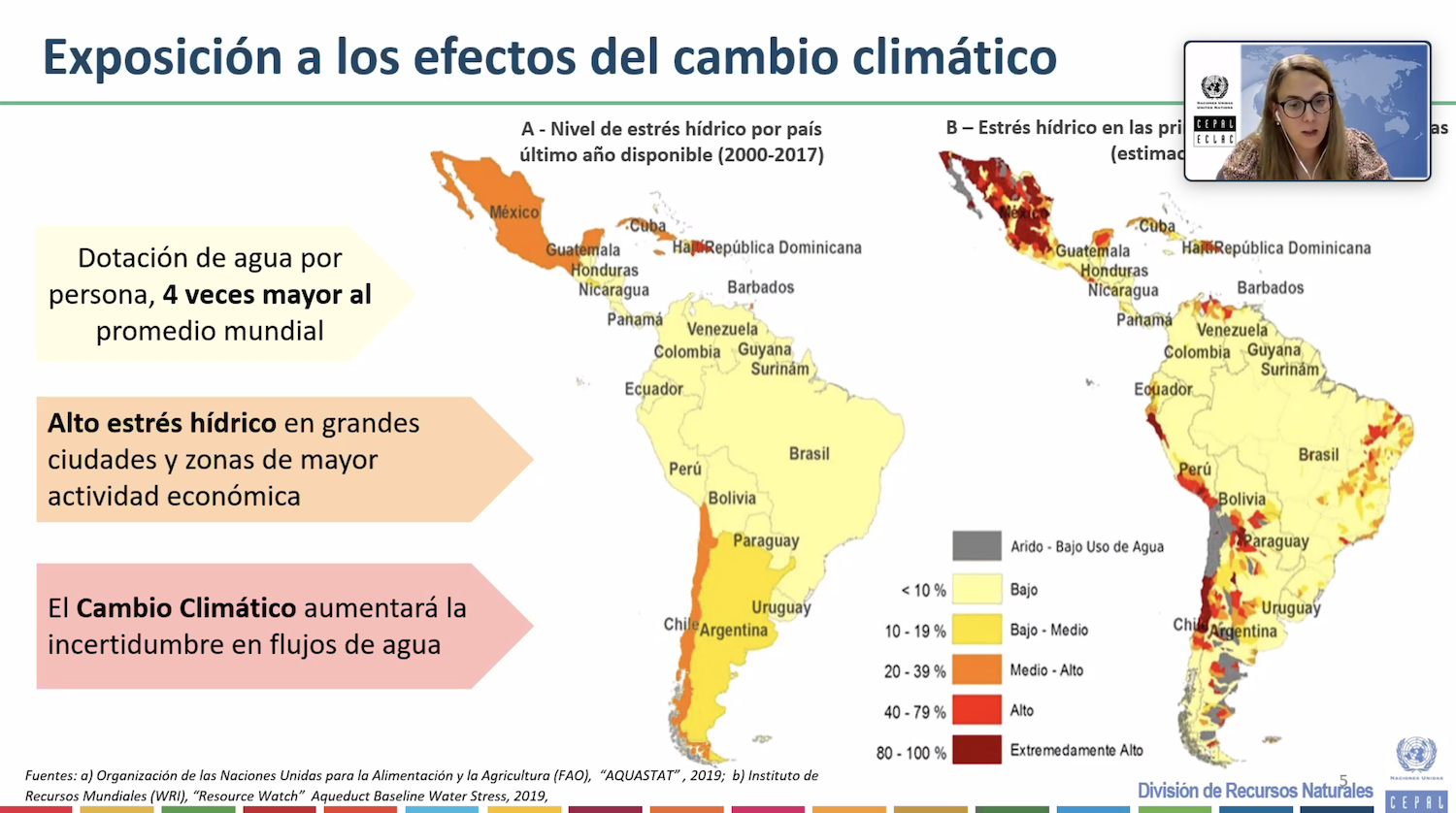ECLAC's Natural Resources Division participates in the "International Seminar on Drought and Flood Management"
Work area(s)
Topic(s)
Teaser
The seminar, organized by CCAD, had as its main objective to increase the knowledge of public policies, strategies and instruments, for the management of the risk of droughts and floods in public entities and regional institutions. ECLAC participated in the event through its Water and Energy Unit, together with high-level representatives of other regional and international organizations.
Event information

Date
29 Nov 2022, 10:00 - 10:30Event type
On November 29 and 30, 2022, the Central American Commission for Environment and Development (CCAD), in its capacity as coordinator of the Climate Change and Comprehensive Risk Management pillar of the Central American Integration System (SICA), organized the "International Seminar on Drought and Flood Management, Sharing Good Practices and Lessons Learned Worldwide”, to generate a space for analysis, reflection and sharing of solutions to face and manage droughts and floods, sharing realities, perspectives, approaches and practices in Latin America and Europe.
Marina Gil, from ECLAC's Natural Resources Division, presented the region's water outlook, challenges and opportunities, through her presentation, entitled "Extreme hydrometeorological phenomena (droughts and floods) and their impact on economies and society”. The presentation began by exposing the hydrometeorological risks that affect the region in the face of climate change. She highlighted the region's vulnerability to droughts and floods, with data showing temperature variability over the past 60 years and the structural challenges the region faces in terms of decreased rainfall. Similarly, she reviewed the impacts of these droughts (such as the Megadrought in Chile) and the level of water stress that exists in various cities and basins in the region, highlighting the persistent vulnerability that leaves 161 million people without access to safely managed drinking water and 430 million people without access to safely managed sanitation.
In this context, the ECLAC proposal to achieve a sustainable and inclusive water transition was presented, which seeks to achieve i) the human right to water and sanitation without leaving anyone behind, ii) an increase in equal access and affordability in rates, eradicating water poverty, iii) elimination of negative externalities (conflicts, pollution and overexploitation) and iv) promotion of circular economy mechanisms through the water value chain.
To close, she briefly shared the Regional Water Dialogues 2023 event, one of the activities that ECLAC is organizing to accelerate SDG 6 in the preparatory framework for the next 2023 Water Conference.